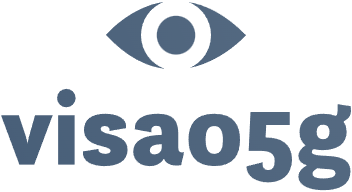Anúncios
Small businesses serve as the backbone of our economy; however, they frequently encounter unique challenges that may jeopardize their success.
One of the most critical steps in safeguarding a business is recognizing the significance of insurance. With various types of coverage available, including general liability and workers’ compensation, understanding which options best meet your specific needs can profoundly impact your enterprise’s security.
This guide outlines the essentials of small business insurance—from selecting the appropriate coverage to navigating the purchasing process—ensuring that you are well-prepared to protect your venture.
Anúncios
Learn how to secure optimal protection for your business.
Understanding the Importance of Insurance for Small Businesses
Insurance plays a vital role in risk management for small businesses, offering essential coverage options that protect against a range of unforeseen circumstances.
In an increasingly competitive market, a thorough understanding of the various types of business insurance is crucial for small business owners to ensure legal compliance, safeguard their assets, and maintain financial stability.
By investing in appropriate insurance policies, such as liability coverage or property insurance, small businesses can effectively mitigate risks associated with natural disasters, theft, and employee-related incidents, thereby promoting a more secure operational environment.
Why Insurance is Essential for Small Businesses
For small businesses, insurance is not merely an option; it constitutes an essential component for protection and peace of mind. It offers critical coverage against potential risks, ensuring compliance with local regulations and fostering financial security.
Inadequate insurance coverage can expose small business owners to significant liabilities that may jeopardize their operations and assets.
By understanding the various insurance products available, these business owners can tailor their coverage to meet specific needs. Conducting a thorough risk assessment enables them to identify potential vulnerabilities and select appropriate policies that not only provide liability limits suitable for their industry but also align with their operational risks.
Additionally, obtaining multiple insurance quotes allows for an evaluation of cost-effectiveness, while familiarity with the claims process ensures that they can navigate challenges efficiently when unforeseen circumstances arise. This proactive approach ultimately strengthens the foundation of a sustainable business, enhancing resilience in the face of uncertainties.
Types of Insurance Coverage for Small Businesses
Small businesses encounter a distinct array of challenges and risks, underscoring the necessity for a thorough understanding of the various types of insurance coverage available to them.
General liability insurance, which safeguards against claims of bodily injury and property damage, and professional liability insurance, which covers instances of negligence in professional services, are critical for comprehensive protection.
Furthermore, property insurance serves to protect physical assets, while workers’ compensation insurance offers coverage for employees in the event of work-related injuries.
Together, these insurance types ensure business continuity and provide peace of mind for business owners.
General Liability Insurance
General liability insurance is an essential policy for small businesses, providing critical liability coverage against claims related to bodily injury, property damage, and personal injury. This type of insurance is vital for safeguarding business assets and ensuring financial security, as it facilitates navigation through the complexities of the claims process while maintaining manageable deductible and premium costs.
Understanding the nuances of this insurance is imperative; when a claim occurs, businesses must adhere to specific procedures for reporting it, which typically involves thorough documentation and timely communication with the insurer.
Several factors influence premiums, including the type of industry, the size of the business, and the claims history. Higher-risk operations may encounter elevated costs.
Selecting appropriate deductibles is a significant factor in premium adjustments; opting for a higher deductible may reduce the premium but could result in increased out-of-pocket expenses when a claim arises. This insurance not only serves as a safety net but also constitutes a strategic financial decision.
Professional Liability Insurance
Professional liability insurance, commonly referred to as errors and omissions insurance, is essential for businesses that offer professional services. It protects against claims of negligence and legal disputes. This specialized coverage is a fundamental component of risk management, enabling small business owners to operate with confidence while addressing the potential implications of litigation.
In an increasingly litigious environment, the importance of such a policy is paramount. It not only safeguards against financial losses resulting from claims but also reinforces the significance of fiduciary duties and compliance with industry standards.
Service-oriented professionals, whether in consulting, accounting, or healthcare, encounter unique challenges that require tailored coverage options. A comprehensive professional liability insurance policy enables these businesses to navigate the complexities of their responsibilities, mitigate risks, and concentrate on delivering high-quality services without the burden of unforeseen claims.
This, in turn, fosters stronger client relationships and enhances their overall reputation.
Property Insurance
Property insurance is essential for small businesses, offering coverage for business assets against various risks, including theft and natural disasters. This form of insurance facilitates prompt recovery from unforeseen events, safeguarding both physical locations and valuable equipment, thereby ensuring operational continuity.
It includes a range of coverage limits and types, addressing various damages such as fire, water damage, and vandalism. Adequate coverage for theft is particularly crucial, as it protects against financial losses that could significantly affect cash flow.
Incorporating elements such as equipment breakdown insurance can further enhance a business’s protection strategy, mitigating the risks associated with unexpected machinery failures. A comprehensive policy not only secures physical assets but also promotes smoother operations and safeguards overall cash flow, which is vital for sustaining business growth.
Workers’ Compensation Insurance
Workers’ compensation insurance is an essential policy for small businesses, offering employee benefits in the event of work-related injuries or illnesses. This type of insurance not only protects employees but also shields business owners from potentially costly claims and lawsuits, thereby ensuring financial security for both parties.
Navigating the complexities of workers’ compensation can be challenging, as specific regulations differ across states. For example, certain states may establish varying coverage limits, which determine the maximum amount insurers are required to pay for an employee’s injuries.
Understanding the claims process is equally important, as it necessitates timely reporting of incidents and comprehensive documentation to ensure efficient compensation payouts. Familiarity with state-specific regulations enables businesses to maintain compliance, reducing the risk of penalties and ensuring that employees receive the necessary support when they require it most.
Factors to Consider When Choosing Insurance for Small Businesses
When selecting insurance for small businesses, it is essential to consider several critical factors to ensure adequate protection and financial security.
Conducting an insurance needs analysis enables business owners to identify coverage gaps, while comparing coverage options and costs facilitates well-considered choices.
Additionally, a comprehensive risk assessment is necessary to develop customized policies that effectively mitigate potential risks.
Assessing Business Needs
Assessing business needs constitutes the initial step in identifying the appropriate insurance coverage for small businesses, enabling owners to pinpoint specific risk factors and potential liabilities. An insurance needs analysis can facilitate this process, helping with effective financial planning and ensuring comprehensive coverage of all necessary areas.
This analysis not only highlights common exposures but also emphasizes unique risk profiles that differ by industry. By examining operational intricacies, business owners can determine which types of industry-specific coverage—such as liability, property, or workers’ compensation—are essential for safeguarding their enterprises.
Understanding these elements promotes a more robust risk management strategy, allowing for the careful alignment of insurance products with the specific nuances of the business. This tailored approach ensures that enterprises effectively mitigate risks while remaining prepared for unforeseen challenges that may emerge in their daily operations.
Comparing Coverage and Costs
Comparing coverage and costs is crucial for small businesses seeking to secure optimal insurance policies. By obtaining multiple insurance quotes, business owners can assess premiums, deductibles, and coverage options to identify a plan that aligns with both their budget and risk management objectives.
This process not only enables them to make informed decisions but also underscores the importance of collaborating with knowledgeable insurance brokers who can offer valuable insights into various policies. A strong emphasis on customer service from these brokers ensures that businesses receive assistance tailored to their specific needs, facilitating a smoother navigation through the often complex claims process.
Ultimately, effective policy comparison enhances confidence in decision-making, minimizes the risk of costly coverage gaps, and strengthens a business’s financial security.
Reputation and Customer Service of Insurance Providers
The reputation and customer service of insurance providers are paramount to the overall experience for small business owners seeking insurance coverage. A dependable insurer streamlines the claims process and offers valuable advisory services, ensuring that clients feel supported throughout their insurance journey.
This aspect is particularly critical in today’s competitive marketplace, where prompt and effective claims support can significantly impact a business’s stability. Evaluating customer satisfaction through insurance reviews provides prospective clients with insight into the performance of various companies in real-world scenarios.
Market research underscores the importance of not only securing the most favorable rates but also selecting an insurer recognized for its responsiveness and assistance.
Choosing the right insurance partner can considerably enhance a business’s resilience during challenging times, making it essential to prioritize these factors in the decision-making process.
Steps to Getting Insurance for Small Businesses
Navigating the process of obtaining insurance for small businesses entails several essential steps that ensure adequate protection and compliance.
Initially, conducting thorough research is critical to understanding the various types of coverage available.
Subsequently, obtaining insurance quotes and evaluating options will aid in making an informed decision, ultimately culminating in the purchase of the appropriate coverage.
Researching and Gathering Information
Researching and gathering information constitutes the foundational step in obtaining insurance for small businesses, enabling owners to identify their unique coverage needs. Leveraging online resources and industry insights can provide valuable knowledge regarding the insurance market and available options.
By utilizing reputable websites and insurance comparison tools, business owners can effectively evaluate different plans that are tailored to their specific risk profiles. Engaging with industry forums and consulting with professionals who possess extensive expertise in risk management can further enhance their understanding of insurance.
It is essential to consider not only the premiums but also the underlying policies and claims processes, facilitating well-considered choices. Additionally, attending local workshops or webinars focused on insurance can bridge knowledge gaps and enable entrepreneurs to select the most suitable coverage for their operations.
Getting Quotes and Evaluating Options
Obtaining quotes and evaluating options is a critical step for small business owners in selecting the appropriate insurance policy that aligns with their needs. By comparing various insurance policies, owners can assess coverage limits, premiums, and any applicable exclusions, thereby making a well-informed decision.
This process commences with the collection of quotes from multiple providers, enabling business owners to identify competitive rates and potential enhancements in coverage. It is essential to look beyond pricing and examine the specifics of each policy, understanding the nuances of coverage that could effectively protect their assets.
Assessing customer service records is also important, as it helps gauge the reliability of each provider and allows owners to select a partner that offers responsive support during the claims process. Through meticulous comparison and a careful review of the details within the quotes, owners can ensure they choose a policy that meets their current needs while remaining adaptable as their business evolves.
Finalizing and Purchasing Insurance Coverage
Finalizing and purchasing insurance coverage represents the concluding step in ensuring adequate protection for small businesses, necessitating a thorough review and mutual agreement on all aspects of the policy. At this stage, it is essential to understand payment options and the responsibilities of the policyholder to maintain compliance and prevent potential issues in the future.
Meticulous attention to the necessary paperwork is critical, as discrepancies at this stage could result in complications later. The clarity of the claims support outlined in the policy can significantly influence how effectively a business manages potential claims.
Discussing payment arrangements is also vital, encompassing the frequency and method of payments to facilitate a streamlined policy renewal process. Additionally, vigilance against insurance fraud should be prioritized, as it can compromise the integrity of the policy.
Addressing these components comprehensively contributes to a more secure financial foundation for any small business.
Frequently Asked Questions
How can I get insurance for my small business?
To get insurance for your small business, you can start by researching different insurance providers that offer coverage for small businesses. You can also consult with a licensed insurance agent who can guide you through the process and help you find the right coverage for your business needs.
What types of insurance should I consider for my small business?
The type of insurance you need for your small business will depend on the industry you are in and the risks associated with your business. Some common types of insurance for small businesses include general liability insurance, property insurance, professional liability insurance, and workers’ compensation insurance.
How do I choose the best insurance protection for my small business?
To choose the best insurance protection for your small business, you will need to assess the specific risks and needs of your business. Consider factors such as your industry, number of employees, and potential risks that could impact your business. It’s also important to compare quotes from different insurance providers to find the best coverage at a competitive price.
Do I need insurance if I am a sole proprietor?
As a sole proprietor, you are personally liable for any lawsuits or damages that may arise from your business. Therefore, it is highly recommended that you have insurance coverage to protect your personal assets. General liability insurance is a good place to start for sole proprietors, as it can cover legal fees and damages in case of a lawsuit.
What are the benefits of having insurance for my small business?
Having insurance for your small business can provide several benefits, including protection against unexpected expenses, liability coverage in case of lawsuits, and peace of mind knowing your business is covered. Additionally, some insurance policies may also offer business interruption coverage, which can provide financial assistance if your business operations are interrupted due to a covered event.
How much will insurance for my small business cost?
The cost of insurance for your small business will depend on various factors such as the type of coverage, the size of your business, and the risks associated with your industry. It’s best to get quotes from multiple insurance providers to compare prices and find the best coverage for your budget.






